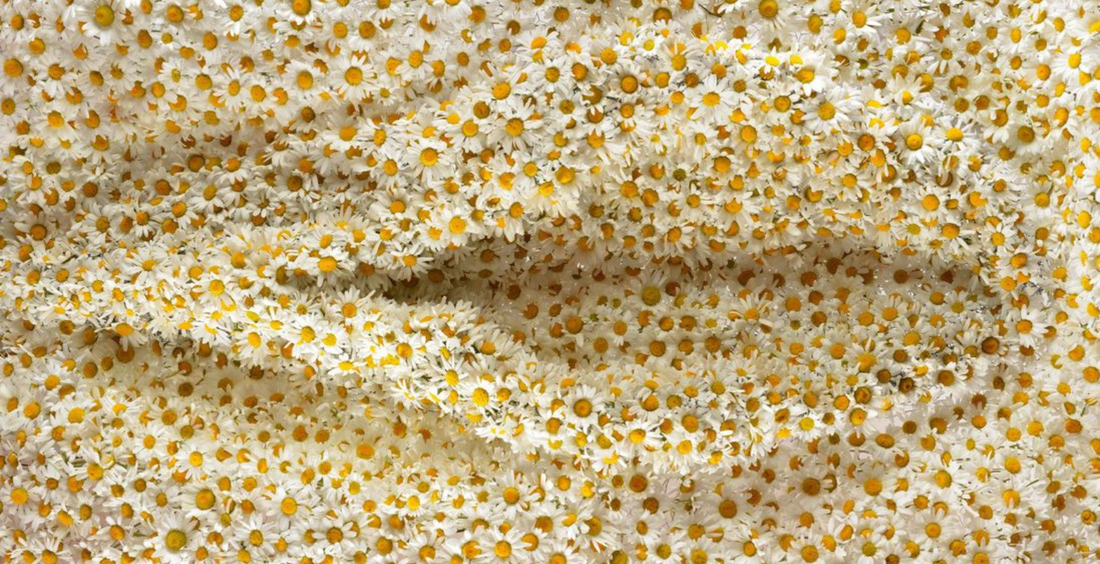
Vaginal Dryness During Menopause: Causes, Symptoms, and Natural Solutions
Share
Vaginal dryness is a common yet often overlooked symptom from perimenopause to postmenopause, experienced by over 50% of women. But what exactly causes this dryness, and what treatments and lifestyle changes can help? Here’s the lowdown on your down below, covering everything from natural solutions to when to consult your doctor and explore prescribed menopause medications.
What is vaginal dryness during menopause?
The hormone estrogen plays a crucial role in keeping your vagina healthy by acting as a natural lubricant. It also stimulates the cells in the vaginal lining, promoting the presence of beneficial bacteria that protect against infections.
As estrogen levels fluctuate and decline during perimenopause, menopause, and postmenopause, the vagina, vulva, and urinary tract can all suffer from a lack of this hormone. This can lead to vaginal atrophy (thinning of the vaginal lining) and increased dryness. The bladder and urethra may also become weaker, causing more frequent and urgent trips to the toilet. Additionally, the reduction in estrogen makes the vaginal area more susceptible to infections, such as urinary tract infections (UTIs) and thrush.
Problems caused by vaginal dryness
Vaginal dryness can cause a range of uncomfortable and, for some of us, quite painful symptoms. Although common, these symptoms are often not discussed due to embarrassment. They can begin during the early years of perimenopause or may not appear until years after menopause. Some common issues include:
- Soreness and Itching: The thinning and drying of vaginal tissues can make the area sore and itchy. Scratching can exacerbate these symptoms, leading to more discomfort.
- Pain During Sex: Dryness and reduced flexibility of the vaginal tissues can cause pain during sex or when using tampons during perimenopause.
- Frequent UTIs: A lack of estrogen can make it easier for harmful bacteria to cause infections.
-
Constant Discomfort: In severe cases, the discomfort can be painful and persistent, affecting even the most basic daily activities, such as sitting or choosing certain types of clothing.
Treatments for vaginal dryness
There are various ways to manage vaginal dryness through the stages of menopause, depending on the severity of your symptoms—ranging from prescribed menopause medications to dietary choices and lifestyle changes. If in doubt, always consult with your doctor to determine the best approach for your specific needs.
Local estrogen treatments:
If the discomfort is affecting your quality of life, your doctor may suggest local estrogen treatments, which involve applying estrogen directly to the vaginal area. This method has been shown to be effective for many women and comes in several different forms, including tablets, creams, and gels.
Vaginal moisturisers and lubricants:
Moisturisers and lubricants can provide relief from dryness and discomfort by keeping the vaginal tissues hydrated. When selecting these products, always choose reputable brands and avoid those with synthetic ingredients or potential irritants. For sexual activity, most health professionals recommend water-based lubricants, as they are gentle on sensitive vaginal tissues.
Natural supplements and lifestyle tips:
-
Vitamin A: This essential vitamin helps maintain the health and lubrication of vaginal tissues. It supports cell growth and repair, ensuring that the vaginal lining remains supple and hydrated.
-
Hydration: Drinking plenty of water is crucial for maintaining overall hydration and vaginal moisture. Aim for at least 8 glasses of water a day.
-
Healthy Diet: Eating a balanced diet rich in omega-3 fatty acids and phytoestrogens (found in soy products, flaxseeds, and whole grains) can support hormone balance and help to reduce symptoms of dryness.
-
Tribulus Terrestris: An adaptogenic herb that supports urinary tract health. This study of menopausal women found that supplementing withTribulus effectively improved lubrication, helping to alleviate symptoms of vaginal dryness.
-
Cotton Underwear: Opt for cotton underwear instead of synthetic fabrics. Cotton is breathable and can help reduce irritation and maintain vaginal health.
-
Gentle Soaps: Always use mild, unscented, pH-balanced soaps for your intimate areas. Harsh soaps and body washes can strip away natural oils and exacerbate dryness.
- Avoid Irritants: Be mindful of products that may irritate sensitive vaginal tissues, such as scented laundry detergents, body washes and bubble baths.
Vaginal dryness is a common issue experienced by over half of us on our menopause journey, and it can be effectively managed with a combination of treatments. Whether through prescribed medications and moisturisers, or incorporating supplements and lifestyle changes, a holistic approach often works best in supporting our bodies through the various changes from perimenopause to postmenopause. Always consult with your healthcare provider to determine the best approach for your individual needs.
You can find both Vitamin A and Tribulus in our Libido Support supplement. This potent blend of adaptogens, enriched with zinc and vitamin A, is designed to help regulate stress and sex hormones and boost natural lubrication, keeping you in the mood!
Discover our range of evidence-based supplements, developed with mind and body nutrients to support your body and your needs before, during, and after this transitionary life stage.
This article has been reviewed by our expert advisory team.
Image courtesy of Patrick Van Der Elst.


